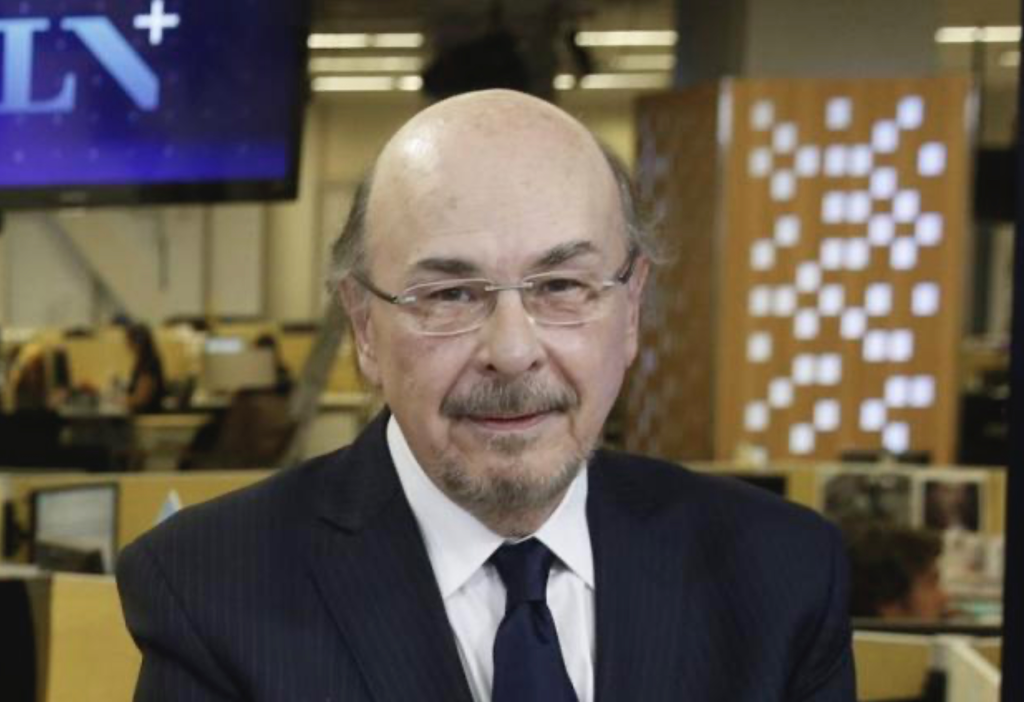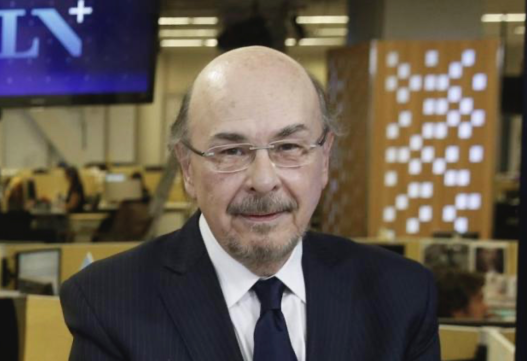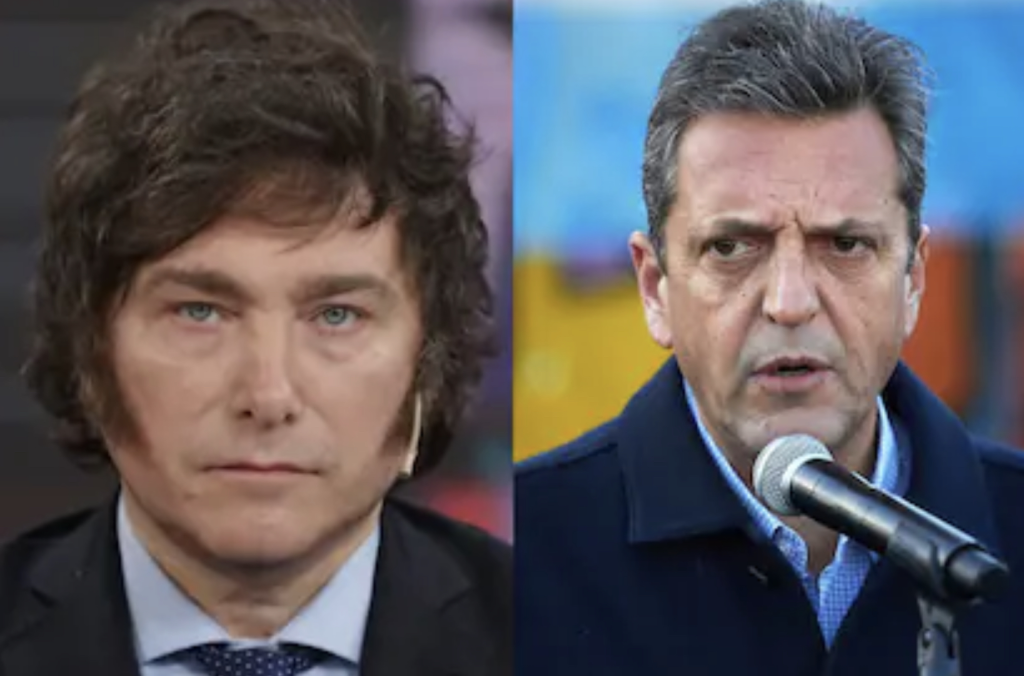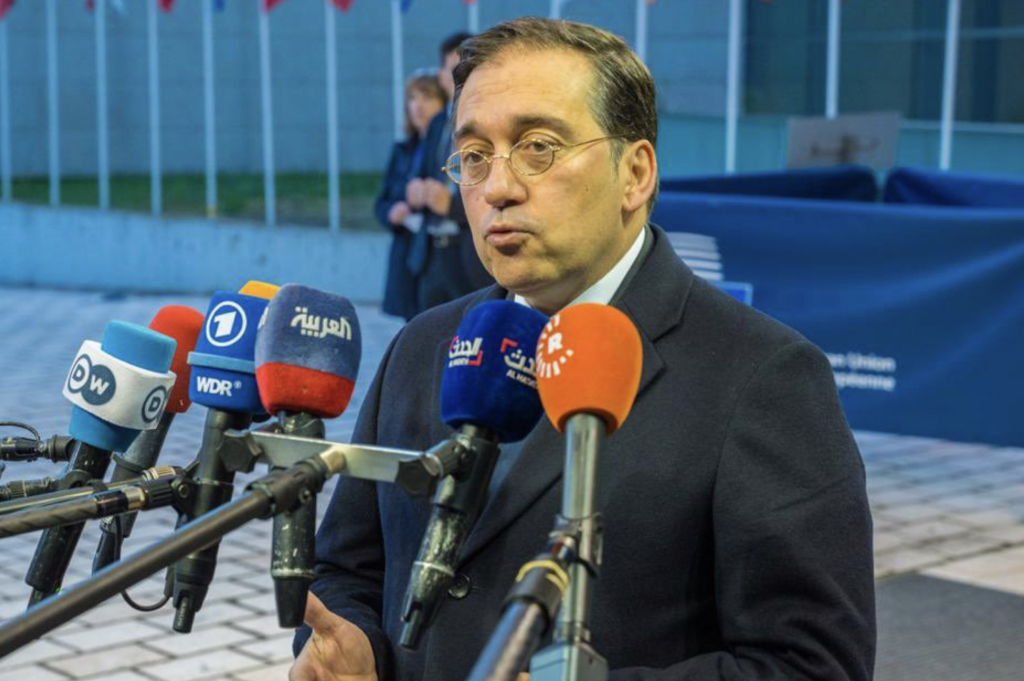JOAQUÍN MORALES SOLÁ
THE LEAST THOUGHTFUL WINNER

An important portion of Argentine society chose yesterday to persevere in easyness, that path that avoids sacrifice and is left with only the small patches for a decimated economy. Sergio Massa’s excellent choice also confirms that populism is always possible when half of society splashes under the poverty line.
Never before (never in the last 40 years of democracy, at least) has a presidential candidate made so much waste of public resources for the benefit of his own electoral campaign. The various “table plans” worked perfectly on election Sunday. There were extraordinary money bonuses for workers and non-workers; there was also a partial elimination of the income tax, which benefited 800,000 middle-class people, and interceded the refund of VAT to retirees, employees and single taxpayers, which meant more money for nine million Argentines.
More than six points apart from the one who came out second, Javier Milei, many observers and experienced electoral officials inferred that the current Minister of Economy is in a better position to be the next president of the Nation. It is only a deduction; the second electoral round, which will be held on November 19, is always another election, with no relation to the previous ones. The truth is that Sunday full of surprises left Massa very close to winning the presidency yesterday, in the first electoral round. He almost did it, but he couldn’t do so much. You will have to face the ballotage.
It’s strange, but in the elections of the day before, the firefighter prevailed who helped put out the fire that the firefighter himself set fire. Only a very confused society was about to give the triumph in the first round to the representative of a political dynasty that destroyed all the stocks of Argentina: from dollar reserves to meat, through energy. He left at the doors of the Government House the head of the economic team with an inflation of 12 percent per month and a dollar at the price of 1,000 pesos. Massa is also the new best friend of Cristina Kirchner, the head of a political faction accused of multiple acts of corruption in serious judicial investigations. Nobody knows, and this is equally true, if that friendship will last beyond the second round of elections.
If you look closely at Massa’s history, it is very likely that if he were the next president, his first decisions as president will be destined to relieve the current vice president as head of Peronism. Massa has more friends than is known in the courts; it’s bad news for Cristina Kirchner. Nothing better than repeated judicial convictions against her to consummate her political replacement.
“All the rational arguments and their exponents were burned,” a leader of Juntos por el Cambio concluded last night, after observing Massa’s election, and he included himself. The surprising results of the Minister of Economy came after the images of Martín Insaurralde squandering dollars, which no official charge can give him, were known on the most exclusive coast of Spain. There could be no doubt that those expenses were possible because there were numerous acts of corruption by the one who was the second official of the province of Buenos Aires, after Governor Axel Kicillof. It turns out that Kicillof was also re-elected by a very wide margin of votes. Julio Rigau, better known as Chocolate, was also seen taking money from debit cards from 49 “ñoqui” (parasites) employees of the Legislature of the province of Buenos Aires. Then it became known that there are several characters such as “Chocolate” Rigau in the Buenos Aires Legislature, but it is not known how many political parties are committed to those practices. In fact, the opposition of Juntos por el Cambio has a representative in the leadership of the provincial Legislature; it is Fabián Perechodnik, vice president of the Chamber of Deputies. But nothing happened. No one was moved either by the expensive Insaurralde party in the Mediterranean or by the waste of political clientelism in the province with the most poor people in the country. Both Insaurralde and Rigau express the second lines of politics. Insaurralde was until 2021 only the mayor of Lomas de Zamora, and the senators and deputies of Buenos Aires have an insignificant political scope. It is worth noting such political nags and the amount of money badly received to infer the extent of political corruption in Argentina.
Anyway, it had already happened that the Argentines, or an important part of them, dispensed an incredible tolerance to the corruption of Peronism. Carlos Menem was re-elected in 1995 when several allegations of corruption against him and his officials already existed in the Justice system, and Cristina Kirchner was re-elected in 2011 when several judges were also investigating alleged acts of corruption during the rise of Kirchnerism. In fact, the original complaint for the corrupt handling of the resources of Vialidad Nacional for the benefit of Lázaro Báez (that is, for the benefit of Kirchner themselves) was filed in Justice by Elisa Carrió in 2008 along with several other deputies, Patricia Bullrich among them.
It is new, yes, that the devastating progress of the economy has not been taken into account by an important sector of Argentines. That new Argentine extravagance will force you to write other manuals on political science and surveys. The old assertion of the pollsters that the elections were won only by governments with a healthy economy was shattered. That is where the influence of populism comes into play on very deficient societies; the Capital is a good example that electoral results are different when there are citizens free from state sponsorship. On the other hand, coinciding news stressed that in the Buenos Aires conurbation and in the poor provinces of northern Argentina, as they had not done in the primaries of August 13, the powerful apparatuses that support Peronism that take advantage of social hardship. It is true, moreover, that Massa’s loose triumph is a product of the division of the opposition. If the votes obtained by Milei and Bullrich are added, a single opposition candidate would have won in the first round.
“It will be a summer rain.” That was the blunt conclusion of an old electoral official about Milei’s presence in Argentine politics after seeing the final results of yesterday’s elections. Milei will have an important block of national deputies, but it is true that Massa will prefer to negotiate with the Juntos por el Cambio block, which will also be significant. There he has, at least, old interlocutors such as the radicals Martín Lousteau, Emiliano Giacobitti and Gerardo Morales himself. Even last night, the version circulated that some leaders of Juntos por el Cambio asked Bullrich not to criticize Massa. Let’s go back to Milei.
The libertarian candidate hid the last week so that his disruptive character did not play a trick on him, but he could not hide the whole gang around him. It appeared from a candidate for national deputy who promised a law so that men could renounce paternity, if they suspected that the woman deliberately broke the condom, to the far-right intellectual Alberto Benegas Lynch, who announced that he would advise Milei to break relationship with the Vatican while the pope is the Argentine Jorge Bergoglio. The Church stood up. Politicians accustomed to the religious leadership of Cardinal Mario Poli, who never spoke in public, no one imagined that the new archbishop of Buenos Aires and primate of the country, Monsignor Jorge García Cuerva, would pass an offense to the Pontiff without an answer. García Cuerva spoke publicly of a Church “storted” by Benegas Lynch’s statements, a speech that was surely repeated in almost every mass on Sunday. Perhaps the Church has shown, thus, that it retains a considerable ascendancy in vast sectors of Argentine society. Milei was very far from the results predicted by all the polls. He even garnered fewer votes than in the August primaries, when all public opinion measurements placed him first, disputing a ballottage with Massa with good forecasts. It was the Minister of Economy, on the other hand, who added 8 percentage points more than the percentage he achieved in August.
Also Together for Change fell almost six points with respect to the August elections. He paid dearly for the lack of plasticity he had by not perceiving that the hard dispute between Patricia Bullrich and Horacio Rodríguez Larreta took place in a context in which his two main opponents, Massa and Milei, did not compete with anyone. Worse: Peronism did what it always does; that is, it is disciplined only on the eve of the elections until it conquers power. Then, he usually returns to his usual internal grescas to discern who is in charge. On the contrary, Juntos por el Cambio lived an intense internal struggle until only the August primaries resolved the quarrel between Bullrich and Rodríguez Larreta. All the Cambimita leaders (not only Bullrich and Rodríguez Larreta) modified the natural course of destiny, but against themselves. Only two years ago, in 2021, they largely won the mid-term legislative elections. They only had to choose a presidential candidate (or a candidate) and not go the wrong way to power. They were wrong, as anyone can see, and now they will have to roll up their sleeves so that that coalition of Republicans, which brought their leaders to power in 2015, does not break.
In two years, Juntos por el Cambio lost more than 18 percentage points. On the contrary, Peronism recovered more than three points compared to 2021. Yesterday, the opposition coalition that ruled between 2015 and 2019 was left out of the field of play. Only Massa and Milei will be there next month, until November 19. The temptation of the rupture will exist in several of the leaders of Juntos por el Cambio, without a doubt, but none will have another chance of power if that alliance of parties is fragmented. They will have to choose a new leader, because neither Bullrich nor Rodríguez Larreta are already in a position to demand that political leadership. And, above all, they must understand that political victory is always the result of elaborate, difficult, arduous and constant work.
This article was originally published in La Nación, courtesy of which we reproduce in EditoRed.



